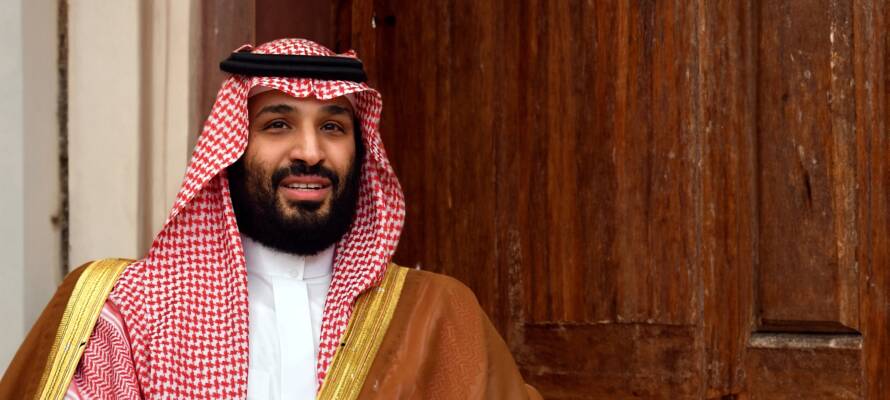Analysts see the textbook revisions as an incremental step that could lay the groundwork for Saudi Arabia’s warming relations with Israel.
By Debbie Weiss, The Algemeiner
Saudi Arabia has been quietly revising its school textbooks, scrubbing negative depictions of Jews, Christians, and homosexuals, and toning down rhetoric against Israel, according to a new report that suggests the Gulf kingdom may be laying the groundwork for normalizing relations with the Jewish state.
The report from the Institute for Monitoring Peace and Cultural Tolerance in School Education (IMPACT-se) found that the latest Saudi textbooks have removed “almost all examples portraying Christians and Jews in a negative manner.”
The curriculum no longer teaches that Zionism is a “racist” European movement, nor denies the historical Jewish millenia-old presence in the region, the report said.
“Antisemitism has pretty much been eradicated, and there was a great deal of it before — it was pretty much a feature of the Saudi curriculum,” IMPACT-se CEO Marcus Sheff told The Algemeiner.
In the past, Jews were referred to in Saudi textbooks as “devil-worshiping monkeys and pigs.”
“We’ve seen an elimination of violent jihadi ideas and homophobia and an increase in critical thinking and teaching,” he added.
Passages that previously implied “Jews and Christians are the enemies of Islam” or criticized them for allegedly “destroying and distorting” the Torah and Gospel have been removed, as have references to homosexuality as a “monstrous atrocity” that is a “deviation from normality.”
When it comes to mentions of Israel, the changes reveal a more nuanced shift. While references to the “Israeli enemy” or “Zionist enemy” and even “Palestine” in lieu of Israel have been removed or diluted, the new textbooks use milder terminology like “the Israeli occupation” or “the Israeli occupation army.”
However, they stop short of acknowledging Israel’s existence. The report also notes that Israel continues to be omitted from maps in some cases.
Other significant revisions include removing a poem opposing “the Jewish settlement of Palestine,” cutting an entire chapter on the allegedly positive impacts of the violent Palestinian uprising against Israel during the First Intifada, and no longer describing the uprising’s “positive results” in a high school social studies text.
The gradual sanitization of language related to Jews, Christians, and Israel comes as Saudi textbooks have also started criticizing terrorist groups like Hezbollah, ISIS, al-Qaeda, and the Muslim Brotherhood, of which Hamas is an offshoot — part of the kingdom’s broader effort to combat extremism in the years following 9/11 after it emerged that the overwhelming majority of perpetrators were Saudi nationals.
Despite a recent surge in reports of a renewed US-brokered attempt to normalize ties between Israel and Saudi Arabia — an effort which, according to many analysts, was intentionally torpedoed by Iran with the Oct. 7 Hamas-led attack on the Jewish state — the Saudis have still issued harsh criticism of Israel’s prosecution of its war against the terror group in Gaza.
The Palestinian cause also remains a highly popular one among the Saudi public.
However according to Sheff, the curriculum overhaul was less about near-term policies and part of a much longer-term societal shift in attitudes and norms.
“You have to separate current events and curriculum creation,” he said. “The curriculum is an expression of the identities and the vision that the leadership wants to pass down to future generations. Clearly what we’re seeing here is an understanding, in this iteration, that demonization of Israel is not part of that vision.”
Saudi Arabia is an “extraordinarily important country” and its leaders are being “thoughtful about what kind of society they want in the future and they understand that hatreds, historical inaccuracies, and prejudices should not be part of their national teaching program,” Sheff added.
Analysts see the textbook revisions as an incremental step that could lay the groundwork for Saudi Arabia warming relations with Israel, especially under Saudi Crown Prince Mohammed bin Salman’s push to de-emphasize religion and promote a more secular Saudi nationalism..
